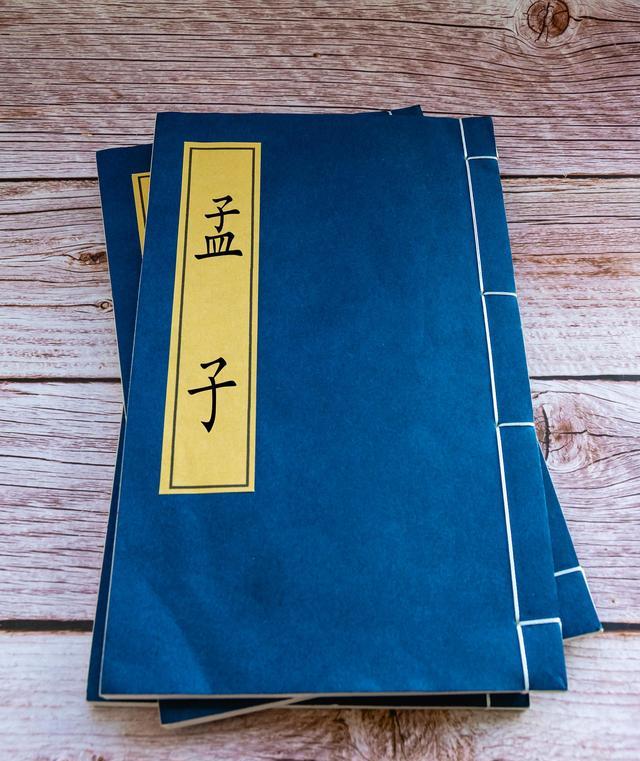——Yang Zhu: A Mountain That Chinese Literati Can't Bypass (7)

Yang Zhu was the earliest intellectual in China, a supporting role in mainstream Chinese society, a marginal person, a predator of this society, and an object of ridicule by mainstream society. Maybe there is no Yang Zhu in the world, and there are more people who scold, and there is a Yang Zhu...
- Caption
Once again, let's go back to square one. "Who is Yang Zhu?" To a large extent, it is making us guess; "Who is Yang Zhu?" "It's about taking us deep into a huge labyrinth that has been built for more than 2,000 years."
The core content of Yang Zhu's thought, extracted from the only remaining ancient texts, is only a few words:
"Yang Zi takes it for me, pulls out a dime and benefits the world, not for it." (Mencius Devoted)
"The ancients lost every penny of the world and did not take it with it, and the world did not take it." No one loses a single bit, everyone is unfavorable to the world, and the world is ruled. (Liezi Yang Zhu)
"Yang sheng gui self." ("Lü's Spring and Autumn No Two")
"Full fidelity, not in the form of things" (Huainan Zi Pan Discourse)
"Where wisdom is precious, I am precious; where strength is cheap, intrusive things are cheap."
"The people are not allowed to rest, and there are four accidents: one is shou, two is the name, three is the position, and four is the goods." Only by not coveting these four can we "be safe for all kings and subjects, and benefit both things and ourselves" (Liezi Yang Zhu Chapter)
Even if all the texts that Wei and Jin were able to collect before were brought together, it would only be about 10,000 words, and there would be more repetitions.
Yang Zhu carries the name of "beast", labels it as indulgent, and lives forever in the narrative of others. What we can see today is always the Yang Zhu in the eyes of others - different Yang Zhu in the eyes of different people.
Since Mencius, Chinese Confucianism has given the most vicious words to Yang Zhu, which has become a standard in Chinese culture for thousands of years. And Mencius poked at the emperor's pain point - Yang Zhu's "no king", which stimulated the anger of the emperors and made the emperors get rid of Yang Zhu and then quickly.
When Mencius and his disciples, with the power of the monarchy, raised a razor toward Yang Zhu, under the collusion of power and Confucianism, the traces of Yang Zhu almost disappeared from the ancient Chinese texts, and Yang Zhu was destined to disappear from mainstream Chinese society.
Judging from the sporadic descriptions, Yang Zhu is a reader who eats all day and has no worries about food and clothing. In his body, we can see the typical characteristics of Chinese readers: they regard themselves as Yao Shun, who claim to be a sage who "governs the big but does not rule the small, and those who achieve great achievements are not small and harsh", hoping to do a big cause through the powerful people in power.
However, all he got was a merciless mockery: "Sir has a wife and a concubine and cannot be ruled, and the garden of three acres cannot be ruled, so it is like the palms of the world. ”
Extrapolating from common sense, we will also draw the following conclusion: A person who can't even manage his two wives well, and who can't even cultivate his own three acres of garden land, still talk about what kind of governance? This is very different from Zhuangzi, who did not want to be the treasure of the princes—although some scholars believe that Zhuangzi is Yang Zhu, but it can be compared with Confucius, Mencius, and other Confucians who are bent on seeking the emperor.
Perhaps because of this, Yang Zhu's experience in the experience can more resonate with the fallen literati. It is not surprising that the influence of Yang Zhu's doctrine is mainly concentrated in a group of "clear-eyed people" with unique interests and isolated lives, or a group of social celebrities who have been spun out of the mainstream of society but are still carefree and elegant.
Reports/Feedback